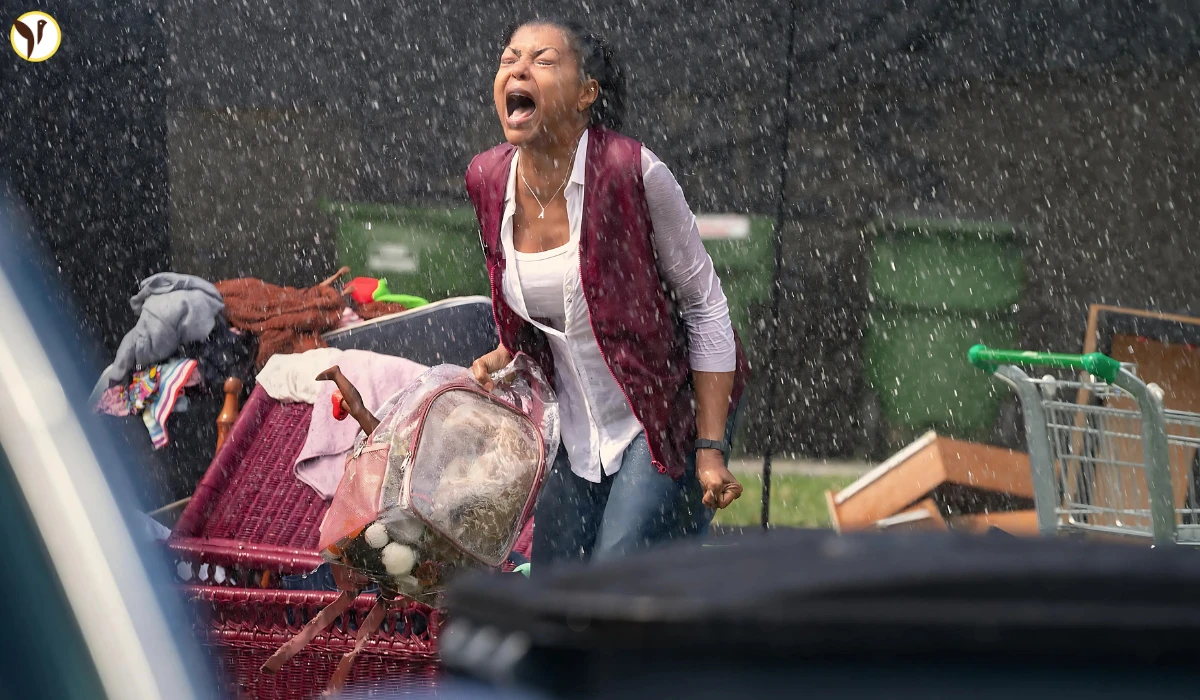Tyler Perry’s new Netflix film Straw (2025) delivers a deeply emotional story centered around a mother facing one of the worst days of her life. With a powerful performance by Taraji P. Henson, the film tackles themes like mental health, poverty, and the struggles of single motherhood. The film's heartbreaking twist left many viewers stunned—here’s what really happened and what it all means.
A Day Full of Struggles for Janiyah
Janiyah Wiltkinson, played by Taraji P. Henson, is a single mother just trying to get through the day. She faces one setback after another: her bank account is frozen, her daughter Aria is taken by child protective services, her car is towed by police, and she’s fired from her job. Things go from bad to worse, and it feels like the world is against her.
She’s desperate, not for herself, but for her daughter—wanting to get her medication and finish her school project. That desperation pushes her to make a decision she never thought she’d make.
The Bank Breakdown That Changed Everything
After trying every option to get help, Janiyah walks into a bank to cash her final paycheck. But she doesn’t have proper ID, and the bank refuses to give her the money. In a moment of emotional collapse, she pulls out a gun—not to harm anyone, but just to be heard.
This leads to a tense standoff with police outside. Inside the bank, we see her talking to the staff and customers, revealing how deeply she’s struggling. The film never tries to paint her as violent—it shows her as a woman crushed by a system that constantly fails her.
The Heartbreaking Twist: Aria Was Already Gone
The turning point of the movie comes when Janiyah gets a phone call from her mother. In that moment, the audience learns a shocking truth—Janiyah’s daughter Aria died the night before from a seizure.
Everything Janiyah thought happened earlier in the day—Aria being taken by child services, her science project, the school call—was a result of her mind coping with unbearable grief. She had imagined her daughter was still alive to avoid facing the truth.
This twist redefines the entire movie and makes it clear: Janiyah’s behavior was not just from stress, but from deep, unprocessed grief and trauma.
What the Ending Really Means
In the final scenes, as police prepare to storm the bank, Janiyah imagines herself being shot down. But in reality, the bank manager and detective approach her with compassion. She puts the gun down and walks out peacefully.
The ending doesn’t show a complete resolution, but it offers hope. Janiyah is taken into custody, but she is no longer alone. The message is clear: people dealing with mental health struggles need understanding, not judgment.
Why Tyler Perry’s Straw Is More Than a Drama
Straw is more than just a movie about a desperate woman. It is a mirror held up to society, asking why someone like Janiyah would have to go through so much alone. It calls attention to the lack of support for people struggling with grief, money problems, and mental health.
Tyler Perry uses this story to humanize issues often ignored or misunderstood. Taraji P. Henson’s powerful acting adds layers of emotion that make Janiyah’s journey feel real and heartbreaking.
Image Source: Netflix









